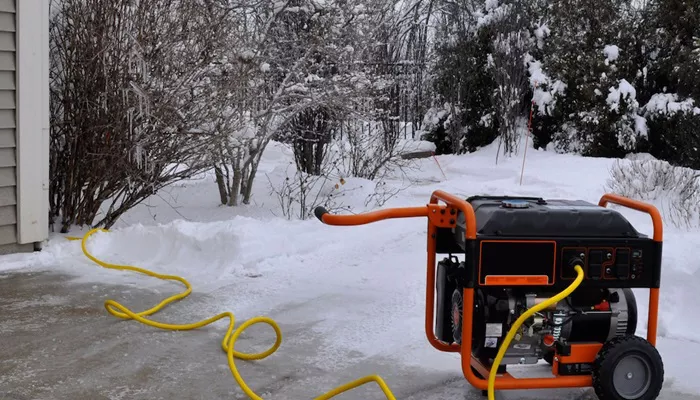When it comes to ensuring your home remains powered during an outage, choosing the right generator is crucial. With various types, sizes, and features available, selecting the best home generator can be overwhelming. This guide will walk you through the essential factors to consider, helping you make an informed decision.
Understanding Home Generators
What is a Home Generator?
A home generator is a device that provides electrical power during an outage. It ensures that essential appliances and systems in your home continue to function, providing comfort and safety. Generators can be powered by different fuel sources, including gasoline, diesel, natural gas, and propane.
Types of Home Generators
There are two main types of home generators: portable generators and standby generators.
Portable Generators: These are smaller, mobile units that can be moved around as needed. They are typically powered by gasoline or propane and are ideal for temporary power needs. Portable generators are less expensive but require manual setup and operation.
Standby Generators: These are permanently installed units that automatically provide power during an outage. They are connected to your home’s electrical system and are usually powered by natural gas or propane. Standby generators are more expensive but offer convenience and reliability.
Key Factors to Consider When Buying a Home Generator
Power Requirements
The first step in choosing a home generator is determining your power needs. Calculate the total wattage of the appliances and systems you want to power during an outage. This includes essentials like refrigerators, lights, heating systems, and medical equipment.
Starting Watts vs. Running Watts: Appliances have two power ratings: starting watts (the power needed to start the device) and running watts (the power needed to keep it running). Ensure your generator can handle the starting watts of your largest appliance.
Fuel Type
Generators can run on various fuels, each with its pros and cons.
Gasoline: Widely available but has a short shelf life and can be hazardous to store.
Diesel: More efficient and longer shelf life but can be noisy and expensive.
Natural Gas: Convenient if you have a natural gas line; it’s clean-burning and doesn’t require refueling.
Propane: Clean-burning and has a long shelf life, but propane tanks need to be refilled or replaced.
Runtime
Consider how long the generator can run on a full tank of fuel. Portable generators typically run for 6-12 hours, while standby generators can run for days, depending on the fuel supply.
Transfer Switch
A transfer switch is essential for safely connecting a generator to your home’s electrical system. It prevents backfeeding, which can be dangerous to utility workers and damage your home’s electrical system. Standby generators usually come with an automatic transfer switch, while portable generators require a manual transfer switch.
Noise Level
Generators can be noisy, so consider the noise level, especially if you live in a residential area. Look for generators with lower decibel (dB) ratings for quieter operation.
Maintenance
Regular maintenance is crucial for the longevity and reliability of your generator. Consider the maintenance requirements and availability of service for the generator you choose.
Top Home Generator Brands
When it comes to reliability and performance, certain brands stand out in the market.
Generac: Known for its standby generators, Generac offers a wide range of models with advanced features and reliable performance.
Honda: Renowned for its portable generators, Honda generators are known for their quiet operation and fuel efficiency.
Champion: Offers a variety of portable and standby generators with excellent customer support and warranty options.
Kohler: Provides high-quality standby generators with robust construction and advanced technology.
Installation and Safety Considerations
Professional Installation
For standby generators, professional installation is recommended. It ensures that the generator is correctly connected to your home’s electrical system and complies with local codes and regulations.
Safety Precautions
Proper Ventilation: Generators produce carbon monoxide, a deadly gas. Always operate generators in well-ventilated areas, away from windows and doors.
Regular Inspections: Regularly inspect your generator for any signs of wear or damage. Ensure all connections are secure and the fuel system is leak-free.
Follow Manufacturer’s Instructions: Always follow the manufacturer’s guidelines for operation, maintenance, and safety.
Cost Considerations
The cost of a home generator varies based on type, size, and features. Portable generators are generally less expensive, ranging from 500to2,000. Standby generators can cost anywhere from 2,000to10,000 or more, including installation.
Budgeting
When budgeting for a generator, consider not only the initial purchase price but also the cost of fuel, maintenance, and potential installation fees. It’s also wise to factor in the long-term savings from avoiding food spoilage, property damage, and other costs associated with power outages.
Environmental Impact
Generators, especially those running on fossil fuels, have an environmental impact. Consider the following to minimize your carbon footprint:
Fuel Efficiency: Choose a generator with high fuel efficiency to reduce fuel consumption and emissions.
Alternative Fuels: Consider generators that run on cleaner fuels like natural gas or propane.
Regular Maintenance: Proper maintenance ensures your generator runs efficiently, reducing emissions and fuel consumption.
Conclusion
Choosing the right home generator involves careful consideration of your power needs, fuel type, runtime, and budget. Whether you opt for a portable generator for occasional use or a standby generator for continuous power, ensure you prioritize safety and proper maintenance. By understanding the key factors and doing thorough research, you can find a generator that provides reliable power and peace of mind during outages.
Investing in a home generator is a significant decision, but with the right information, you can make a choice that best suits your needs. Remember, the goal is to ensure your home remains safe and comfortable, no matter what challenges come your way.

